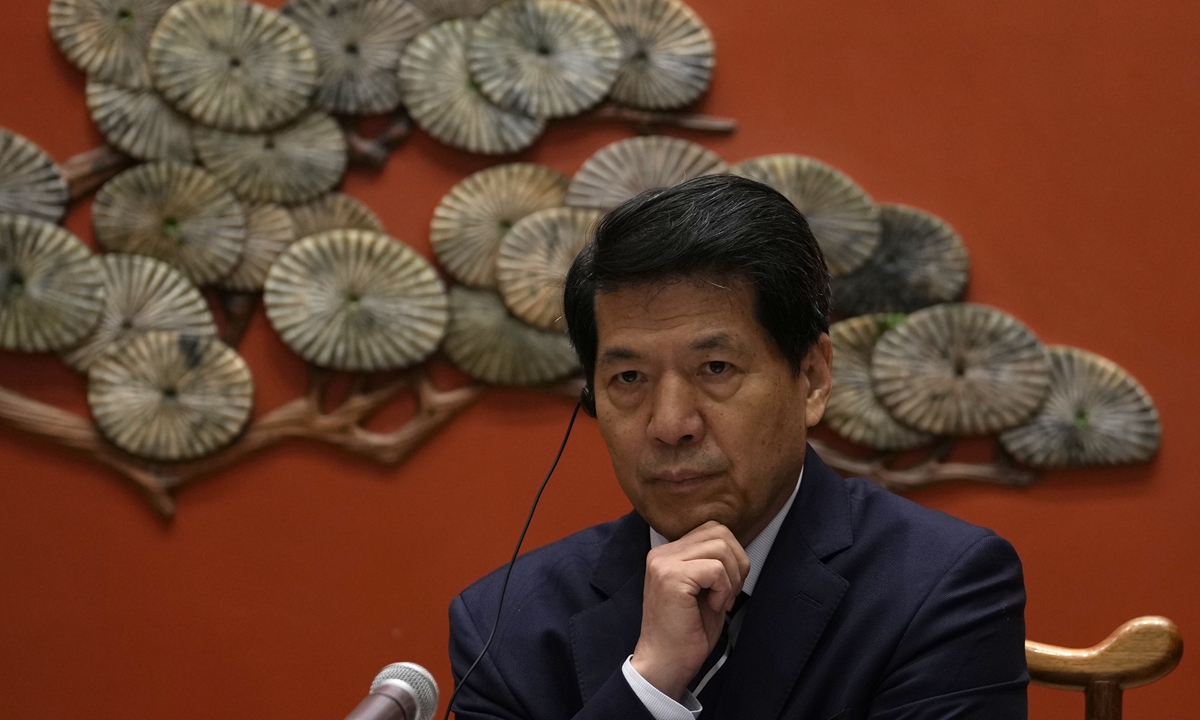Chinese FM reveals details of third round of shuttle diplomacy over Ukraine crisis

Li Hui, Special Representative of the Chinese Government on Eurasian Affairs Photo:VCG
China's Foreign Ministry on Friday released a briefing on efforts by China's Special Representative on Eurasian Affairs Li Hui to find a political resolution to the Ukraine crisis, listing six proposals put forward by China and agreed by multiple parties for a de-escalation of the situation, including no spillover of the conflict and opposing the use of nuclear and biological weapons.
From May 3 to 9, Li conducted a third round of shuttle diplomacy on the political resolution of the Ukraine crisis. He visited Turkey, Egypt, Saudi Arabia, and the United Arab Emirates, where he held discussions with senior officials. Before and after the visits, Li also communicated with officials from countries such as Brazil, South Africa, Indonesia, and Kazakhstan, according to the Foreign Ministry.
Li exchanged in-depth views with all parties on the Ukraine crisis. There was widespread agreement on some proposals put forward by China to call for a de-escalation of the situation, including no spillover of the conflict, no escalation of hostilities, and no provocation by any party.
Other proposals that have been agreed by all parties include that the parties to the conflict should create conditions for the resumption of direct dialogue, promote de-escalation, and work toward achieving a comprehensive ceasefire, as well as increasing humanitarian assistance to the affected regions to prevent a larger-scale humanitarian crisis.
There was also agreement on the proposal to support the exchange of prisoners of war by the parties to the conflict, and opposing the use of nuclear and biological weapons, as well as opposing armed attacks on peaceful nuclear facilities and other nuclear installations. All parties agreed on adhering to international laws such as nuclear safety conventions to prevent human-induced nuclear accidents.
They also agreed to proposals on jointly supporting international cooperation in energy, finance, the grain trade, transportation, and other fields, and jointly safeguarding the security of key infrastructure such as oil and gas pipelines, electric power facilities, and undersea cables to ensure the stability of the global industrial and supply chains.
All parties agreed to continue communication and coordination, while welcoming the support of the international community in promoting efforts to de-escalate the situation, and jointly playing a constructive role in advocating for a ceasefire, peace talks and reconciliation, according to the release from China's Foreign Ministry.
Global Times
